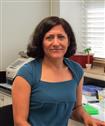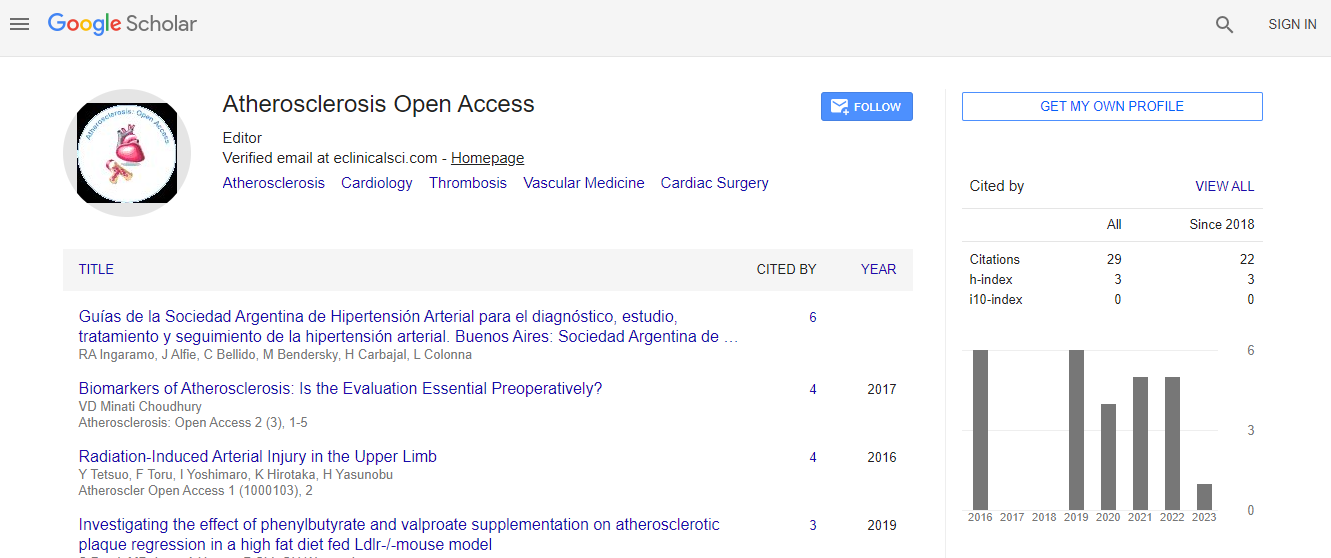Our Group organises 3000+ Global Conferenceseries Events every year across USA, Europe & Asia with support from 1000 more scientific Societies and Publishes 700+ Open Access Journals which contains over 50000 eminent personalities, reputed scientists as editorial board members.
Open Access Journals gaining more Readers and Citations
700 Journals and 15,000,000 Readers Each Journal is getting 25,000+ Readers
Google Scholar citation report
Citations : 30
Atherosclerosis: Open Access received 30 citations as per Google Scholar report
Atherosclerosis: Open Access peer review process verified at publons
Indexed In
- Google Scholar
- RefSeek
- Hamdard University
- EBSCO A-Z
- Publons
- ICMJE
Useful Links
Related Subjects
Share This Page
Gloria Salazar

Gloria Salazar
Assistant Professor
Department of Nutrition, Food and Exercise Sciences
College of Human Sciences
Florida State University
USA
E-mail: gsalazar@fsu.edu
Biography
Dr. Gloria Salazar obtained a M.S. in Biochemistry and a PhD in Molecular and Cell Biology from the Catholic University in Santiago, Chile. She moved to Atlanta in 2002 as a postdoctoral fellow at Emory University, where she studied membrane trafficking events involve in synaptic vesicle biogenesis. She is currently an Assistant Professor in the Department of Nutrition, Food and Exercise Sciences at Florida State University. Dr. Salazar research focuses on vascular aging or senescence and its impact in age-related diseases such as atherosclerosis. These studies are significant because the increase in life expectancy, in particular in developed countries, has considerably increased the population at risk of developing age-related diseases. Dr. Salazar’s research has established a novel interplay among mitochondrial function, autophagy and zinc metabolism in the regulation of vascular aging. These studies will provide a foundation for novel therapeutic interventions to promote healthier aging and prevent/delay age-related diseases including atherosclerosis.
Research Interest
Vascular aging, atherosclerosis, mitochondrial dysfunction, autophagy and zinc metabolism.
Publications
Intracellular Zinc: A mediator of Vascular Aging and Disease?
| Gloria Salazar |
| Editorial: Atheroscler Open Access 2016, 1:e103 |

 Spanish
Spanish  Chinese
Chinese  Russian
Russian  German
German  French
French  Japanese
Japanese  Portuguese
Portuguese  Hindi
Hindi 
